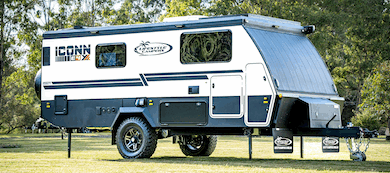Oregon Ends State’s Option for Movable Tiny Houses
A major change to Oregon’s building codes has effectively ended the state’s acceptance of movable tiny houses. This negatively affects Oregon consumers who want this housing option as well as the tiny house builders who are building them.
The increasing demand for affordable housing from a growing number of Oregonians has resulted in expansion of the state’s tiny house building industry. This emerging industry now includes a growing number of professional builders providing viable, affordable tiny house options to the marketplace.
Many tiny house builders in Oregon have invested thousands of dollars to become certified RV manufacturers so they can legally build to the RV Industry Association’s codes, which are accepted internationally as the industry standard for building tiny houses classified as RVs.
In addition to recognition as RV manufacturers, most tiny house builders in the state are licensed contractors.
In July 2017, Oregon’s Department of Consumer & Business Services’ Building Codes Division (BCD) removed the legal path to building movable tiny houses by explicitly excluding “tiny homes on wheels” from RV building codes (OAR 915.525.0005).
The BCD offered no alternative legal path to builders for movable tiny houses, according to Lori Slaughter of the American Tiny House Assoc. chapter in Oregon. Local, regional and national consumers can’t legally contract with Oregon builders to construct their movable tiny houses.
In addition, Oregonians have lost this housing option altogether because Oregon’s DMV will no longer issue titles and registration for movable tiny houses, she writes. This prevents owners from accessing financing and insurance.
The BCD action has effectively shut down a major part of Oregon’s tiny house building industry because movable tiny houses, previously recognized as RVs, make up the majority of the industry’s business. In addition to losing revenue from Oregon buyers, Oregon’s tiny house builders are now at a disadvantage to their out-of-state competitors. Unlike Oregon, the majority of states in the U.S. follow RVIA standards for RV manufacturing. Several companies that build movable tiny homes are considering leaving the state altogether, despite growing demand for their products.
Many states, including Colorado, Maine, Idaho, Georgia, Massachusetts, California and Texas, are moving to adopt building codes and zoning regulations that allow for all types of tiny houses.



